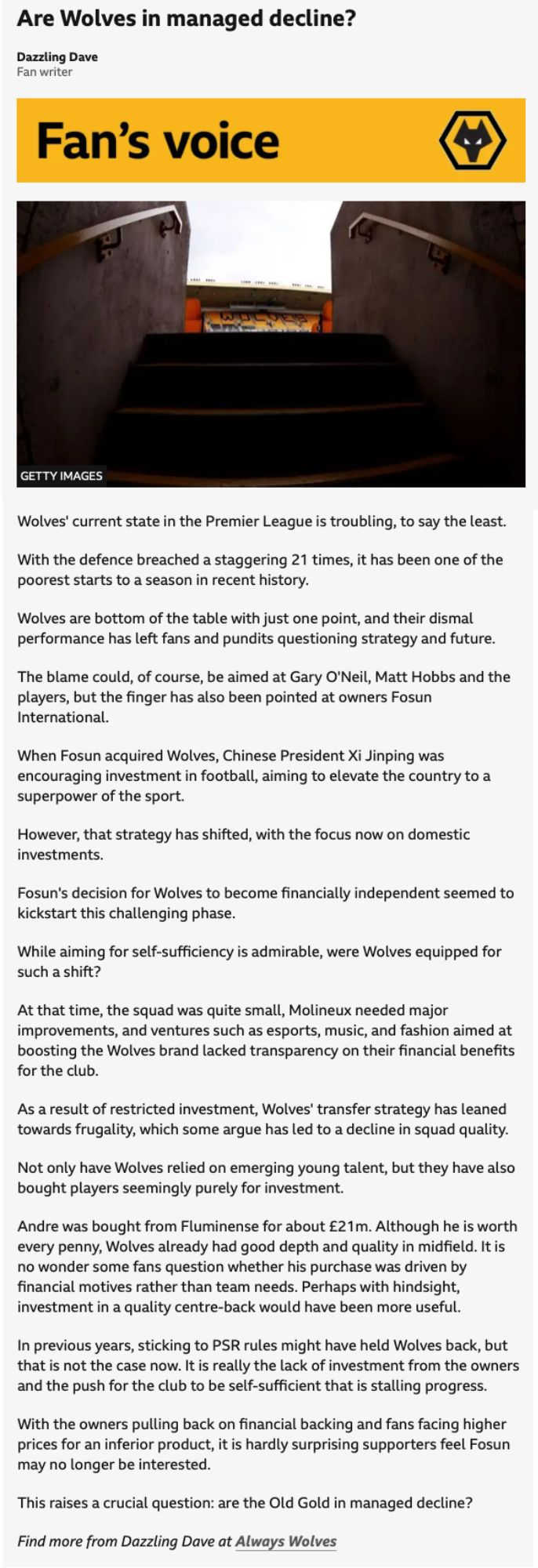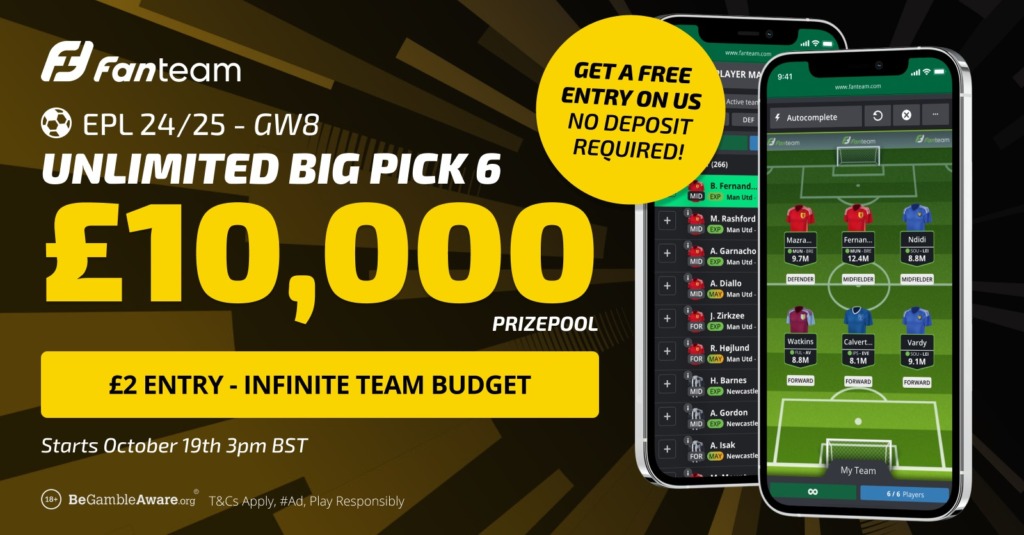DAZZLING DAVE WRITES FOR BBC SPORT LOOKING SPECIFICALLY AT THE ROLE OF FOSUN INTERNATIONAL IN VIEW OF WOLVES CURRENT TROUBLES
Wolves’ current state in the Premier League is troubling, to say the least. With their defence breached a staggering 21 times, they’ve had one of their poorest starts to a season in recent history. Wolves sit bottom with just one point, and their dismal performance has left fans and pundits questioning their strategy and future.
The blame could, of course, be aimed at Gary O’Neil, Matt Hobbs, and the players, but the finger has also been pointed at the owners, Fosun International.
When Fosun acquired Wolves, Chinese President Xi Jinping was encouraging investment in football, aiming to elevate the country to a football superpower. However, that strategy has shifted, with the focus now on domestic investments.
Fosun’s decision for Wolves to become financially independent seemed to kickstart this challenging phase. While aiming for self-sufficiency is admirable, were Wolves equipped for such a shift? At that time, the squad was quite small, Molineux needed major improvements, and ventures such as Esports, Music, and Fashion aimed at boosting the Wolves brand lacked transparency on their financial benefits for the club.
As a result of restricted investment, Wolves’ transfer strategy has leaned towards frugality, which some argue has led to a decline in squad quality. Not only have Wolves relied on emerging young talent, but they have also bought players seemingly purely for investment. André was bought from Fluminense for around £21 million, and although he is worth every penny, Wolves already had good depth and quality in midfield. It’s no wonder fans question if his purchase was driven by financial motives rather than team needs. Perhaps with hindsight, investment in a quality centre-back would have been more useful.
In previous years, sticking to PSR rules might have held Wolves back, but that’s not the case now. It’s really the lack of investment from the owners and the push for the club to be self-sufficient that’s stalling progress.
With the owners pulling back on financial backing and fans facing higher prices for an inferior product, it’s hardly surprising that supporters feel Fosun may no longer be interested. This raises a crucial question: are the Old Gold in managed decline?




